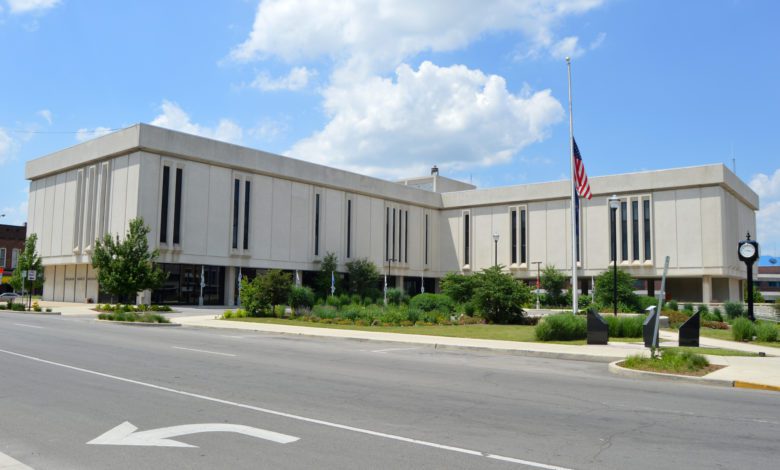
Metropolitan Planning Organizations, Part 1
How Oligarchy Creeps Into Local Decision Making
Are Metropolitan Planning Organizations worth discussing? Yes, and we’ll discuss why in this three-part series.
As a result of the recent news article published this past week about the Loft Apartments on Washington Street in Muncie, Indiana, we were asked a few questions about oligarchy and how decisions are made in our community. The Opportunity Zones are already getting trashed across the nation for their inherent bias toward the rich. The only opportunity created is for the rich to conceal monies to avoid paying capital gains tax.
An article I read last week about federalism referenced an attractive regional vehicle of power – a metropolitan planning organization (MPOs). In the article titled, “The Withering Away of the States Can’t Happen Soon Enough, It’s time for a new federalism that brings suburbs and central cities together to promote equity, growth, and sustainability,” Nathan Newman; shared his ideas about utilizing these federal MPOs to pass the control of Republican leadership at the state level so the citizenry can move ahead progressive projects for the communities – especially municipalities within Red States.
The title intrigued me due to all the federalism occurring within our country today; more specifically, the anti-democratic status of the Red States controlled through Charles Koch’s dark money network like the one in which I live – Indiana. They have become a race to the bottom to see just how crazy things can get. Yet, within those Red States are pockets of Blue cities, like Indianapolis.
Federalism Has Taken on New Meaning
The tax monies produced by municipalities are captured and used by the state or county bureaucrats. But, of course, this is done to enrich themselves and enact their self-serving policies. One look at Indianapolis’s donut ring called white-flight suburbia is all it takes to grasp the issue. Add the state lawmakers who gerrymander our political districts, and you quickly understand why and how the game is played. It’s all about money and power. And when you mention money and power, oligarchy is always in the picture. Sometimes it’s obvious, other times it’s inconspicuous, but it’s always there.
As Nathan confirmed:
“Instead, we now have state governments regularly diverting much of the federal funding they receive away from racially diverse cities in favor of largely white suburbs and exurbs, while increasingly blocking any innovative policy by blue cities, from local minimum wages to innovative housing policies through preemption of local laws. It’s not just that state governments like Texas are not helping local regions, complains Austin’s Casar; “they are usually trying to undo anything good we do.”
https://www.thenation.com/article/politics/federal-states-rights/
This is a real problem as more people embrace global leadership as the key to coordinating worker committees. In addition, global citizens want a new form of centralized planning where resources are wisely used sustainably.
What Are Metropolitan Planning Organizations
Okay, I then looked at Nathan’s academic recommendation, which refers to Metropolitan Planning Organizations and mentions regions and progressive income; it piqued my interest. He writes:
“Instead, programs like Medicaid, unemployment insurance, and transit programs should be fully funded at the national level with progressive income and corporate taxes, then administered directly through regional governments, bypassing the states.
This is not as unprecedented as it sounds. Up until the 1930s, most federal money was spent directly by the federal government itself. Think the Postal Service and its federal employees operating in every community to this day.
And if you think “regional governments” would take massive new social engineering to create, think again. Over the past half-century, the federal government has quietly helped create what are called Metropolitan Planning Organizations (MPOs) covering well over 400 metropolitan regions in the country.
https://www.thenation.com/article/politics/federal-states-rights/
I heard of MPOs before but didn’t realize they were a federal government vehicle for distributing U.S. taxpayer monies. I always considered them a local institution created for collaborative projects where economic development took place that benefitted more than one county within a state – therefore, a statewide vehicle.
A metropolitan planning organization (MPO) is a federally mandated and federally funded transportation policy-making organization in the United States that is made up of representatives from local government and governmental transportation authorities. They were created to ensure regional cooperation in transportation planning.[1] MPOs were introduced by the Federal-Aid Highway Act of 1962, which required the formation of an MPO for any urbanized area (UZA) with a population greater than 50,000. Federal funding for transportation projects and programs is channeled through this planning process.
https://en.wikipedia.org/wiki/Metropolitan_planning_organization
Who Governs Our Local MPOs
Okay, Wikipedia further describes the governance of an MPO as such:
Typically, an MPO governance structure includes a variety of committees as well as a professional staff. The “policy committee” is the top-level decision-making body for the planning organization. In most MPOs, the policy committee comprises:
– elected or appointed officials from local governmental jurisdictions such as municipalities or counties;
– representatives of different transportation modes, such as public transit, freight, bicycle/pedestrian; and
– state agency officials such as, state Department of Transportation, environmental agency, etc.; and
– non-voting members such as FHWA, FTA, FAA, FRA, staff advisers from state departments of transportation, Chambers of Commerce
With only a few unique exceptions nationwide (such as the MPO in Portland, Oregon), MPO policy committee members are not elected directly by citizens. Rather, a policy committee member typically is an elected or appointed official of one of the MPO’s constituent local jurisdictions.
https://en.wikipedia.org/wiki/Metropolitan_planning_organization
MPOs Are Really Federal Authorities Embedded in Our Region
It would seem from the description above, these MPOs have restricted roles for decision-making, but that all changed in 1991. Check this out:
The enactment of the 1991 Intermodal Surface Transportation Efficiency Act (ISTEA) ushered in a “renaissance” for MPOs. After a decade or more of being consigned to a minimal role in transportation planning, ISTEA directed additional federal funding to MPOs, expanded their authority to select projects, and mandated new metropolitan planning initiatives. For the first time, state transportation officials were required to consult seriously with local representatives on MPO governing boards regarding matters of project prioritization and decision-making.
https://en.wikipedia.org/wiki/Metropolitan_planning_organization
Based on the enhanced role in “project prioritization and decision-making,” and considering that our federal government just passed a major infrastructure bill in Washington, I thought it would be an excellent exercise to follow the cash from Washington to our region here in Indiana to see who is making decisions on our behalf. Taxpayers should be informed, and knowing that project selection has been sketchy in our community, the press should let them know they are being watched.
Indiana Has a State Council of MPOs
Doing a quick search, I came up with the Indiana MPO, which defines itself as:
The MPO Council is an organization of the fourteen Indiana MPOs and was founded in 1984. The group holds monthly meetings in Indianapolis that are attended by the executive director of each MPO or a representative designated by the executive director. The Council functions as a forum for MPOs to discuss issues and share solutions, as well as the representative voice for MPOs in state legislative, executive, and judicial matters. This “voice” allows the MPOs to better work with the state to improve community solutions to transportation and planning issues.
http://indianampo.com/about.html
There are fourteen MPOs in Indiana representing thirteen Indiana Urbanized Areas. Two of these MPOs have bi-state agreements which reach into Kentucky and Ohio.
Click on the links below to view more in-depth descriptions of an MPO’s role and responsibilities with planning for its local public agencies and coordination with the Indiana Department of Transportation (INDOT).
- Letter of Adoption: INDOT, MPO, and RPO Planning Roles, Responsibilities and Planning Procedures Manual
- Planning Roles & Responsibilities Manual
- Planning Cooperative Procedures Manual
- FY 2022 Planning Emphasis Areas
Delaware County/Muncie Has Their Own MPO
The state’s MPO Council provided links to the regional MPOs. For the Muncie area, it sent me to the local county DMMPC website, which gives this description:
The Delaware-Muncie Metropolitan Plan Commission (DMMPC) is the Planning Department for the City of Muncie and unincorporated Delaware County (see Planning & Zoning). The DMMPC is also the office for permitting and zoning code enforcement in the unincorporated Delaware County (see Building & Enforcement). The DMMPC is the designated Metropolitan Planning Organization (MPO) for the Muncie Urbanized Area, charged with carrying out federally mandated transportation planning activities (see MPO Transportation Planning).
https://www.co.delaware.in.us/department/?fDD=20-0
There we go. For those following along, this entity has federal powers within our (city-county-state-region) to spend the bucks. While the website may be bland, behind the scenes, it has lots of power to plan and distribute federal dollars, according to Nathan Newman at CUNY.
Local Oligarchy Has Situated Itself Next to the MPO
What popped off the page at me were the participants of the “planning and distributing” of federal dollars:
A collaborative effort of the DMMPC, the Muncie Action Plan (MAP), Next Muncie, the City of Muncie and Delaware County to create the next Delaware-Muncie Comprehensive Plan and a Strategic Investment Plan for the City of Muncie to be the next Muncie Action Plan.
https://www.co.delaware.in.us/department/?fDD=20-0
The two highlighted groups aren’t elected bodies. Both are controlled by the local oligarchy through Jud Fisher. As in the case of Next Muncie, we’ve already seen the deception used by the oligarchs as they wrest power from the local government selling city-owned properties to the millionaire class so their fellows can dodge capital gains taxes essential for government services; labeling their deception “Opportunity Zones.”
Oligarchs believe they are fixing inequities created by capitalism by using their money and influence to gain even more control through non-profits that drain monies from the commons (government). Over a period of time, the community, stripped of resources, becomes dependent on the oligarchy. I heard it a decade ago in Muncie from a “local leader” when she said, “If it weren’t for the Ball Brothers Foundation, this community would be starving to death.”
It never occurred to her that the Ball brothers extracted their wealth from our community while squeezing local workers of every penny through rent-seeking. Instead of building wealth for the community or sharing it among workers, they hoarded it for themselves until they got bored with the place and moved, leaving their descendants behind with trust funds to dole out via grant applications. The handing out of money does buy many sycophantic followers and worshipers who defend capitalists and capitalists not understanding their money was gained by the hard work of our ancestors. The groveling and admiration are quite pathetic. It’s the worship of Mammon from the Bible.
However, their control renders locals powerless, making the words of Chris Hedges, a Pulitzer prize-winning author, even more prevalent, “The political and economic disempowerment that is the consequence of oligarchy infantilizes a population.” That is Muncie, Indiana in a nutshell.




